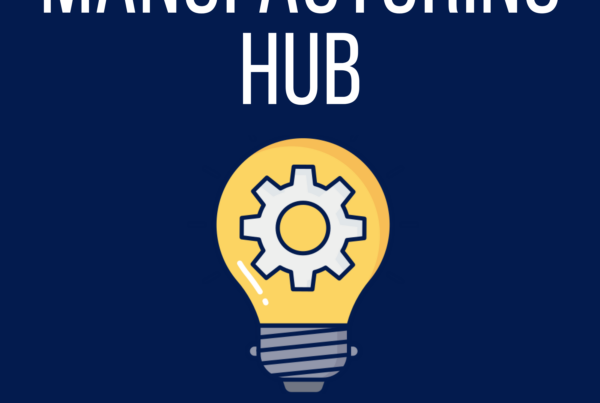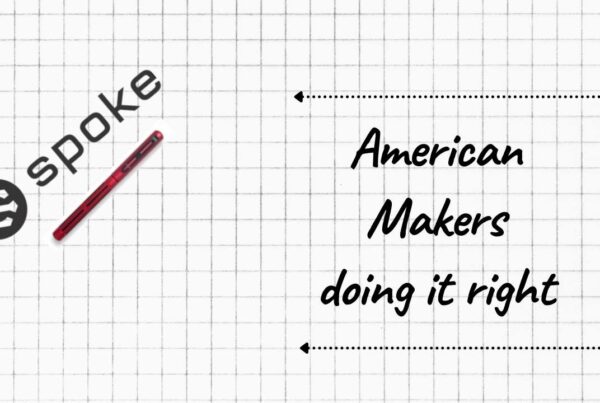Dave: When we were talking about remote interviews, you know, the new buzz word of our industry’s literally Zoom and it’s something that I’ve been using for at least three years. I think I’ve had a pro account and I know Jordan and I spent a lot of time talking on it. We’re actually using it right now. and one of the interviews, one of the remote interview tips if you’re going to do it is you know, talking about backgrounds and I only bring up the topic because Jordan has his normal background behind him and I’m using one of these new Zoom, backgrounds that is doing a pretty good job of making me look like I am in outer space and not in the middle of the desert somewhere.
And so, Jordan, from your perspective, what are the best, remote interview tips? Like what are the remote interview tips that you tell your talent, you tell your clients, when they’re going to go through that process of talking to someone for the first time?
Jordan: Yeah. So most of the time when I’m working with clients, they’ll do a phone interview, they start with HR or the hiring manager sometimes both. So I, I kind of just say, Hey, it’s a phone interview with video capabilities. You’re just going to see the other person on the other side. Yeah. Okay. The trick in this time and age, because a lot of people have already done Skypes, so some people are familiar with it and they’ve done those kinds of formats, the trick is, are you prepared to have the phone interview and then a Skype, Zoom, whatever you want for your in person interview? Then are you prepared to make a hire off of not even meeting them in person? Cause I think that’s going to be a huge jump for people. I’m going to hire this person. I’ve only talked to them and then had a Skype call for an hour.
Jordan: So, not a lot of people have done that and you know, it could be uncharted territory. And I completely empathize with that as, as a decision maker, I’ve now decided to bring this person on their salary, their responsibilities they’re supposed to do. And I don’t really know him all that well. I haven’t met them.
But the other thing is I would tell you, okay, the only difference between now and doing this, as a Zoom interview, you would have had them onsite, you could have done a tour, meet the team, and you guys are going to sit in an office or you’re gonna sit at lunch and you’re going to discuss the same things. So my question is, what is the big difference? I personally would love to before I hired anybody to meet them in person. If that’s not able to be done, I’m not going to say I’m not going to hire anybody.
Jordan: So I’ve got to look in and see, hey, what’s the difference between doing an in-person onsite interview before we make an offer versus having a zoom call and then, okay, we feel good enough. We’re going to make them an offer.
I think it’s scary because I want to see that person. I want to see how they dress. I want to see how they treat other people. How did they treat the waitress? How do they, you know, treat the admin person at the front? What’s their body language like? You get a better read when you’re in person, but that doesn’t completely agree with that. But that doesn’t mean that we can’t hire from just doing a Zoom call right now. No, he’s still asking all the questions you want and still go through the history of their skills. Their experience doesn’t line up with what we’re looking for culture-wise.
Jordan: Now are you hiring somebody, you work in Indianapolis, for example, and you’re hiring someone to work in Indianapolis and you’re still gonna do a Zoom call. Okay, that’s fine. Great. When this is all over, they’re going to come in. You’re going to be able to shake their hands. You’re going to be able to have rapport and build with them.
Let’s say you’re in Indianapolis and you hire somebody out in Seattle. Well in that case, yeah, you would fly somebody out and meet them, but you’re only going to have them for half a day, maybe a full day, two days if it’s some kind of a special occasion, but then they’re going to fly back out to Seattle and that’s how you’re going to manage that employee through Zoom, through email, through calls. So I think we need to get used to it, practice it, and have that as a quiver, in our arrow bag so to speak, so that when times like this happen, we are confident in making hires virtually.
Dave: No, I think that that, that’s a great point and I think that we’re going to see more and more companies seeing that as options and with virtually everyone being forced to who can work remotely, work remotely now, I think we’re going to see that as an option that more people do.
I think we’re going to see more Zoom calls, more Skype interviews. I think you raised a great point, Jordan, that if you are going to be hiring a remote employee, as much as it would be nice to shake that person’s hand and to see them face to face and to see how they interact with the rest of the world, you know, especially with the remote employees, it really matters how they behave on Zoom, how they behave on Slack, how they behave in an email. Because that is 90 plus percent of what you’re going to see and probably 100% of what the client is going to see.
Jordan: To add onto that, Dave, you know, from a client perspective and even candidate perspective, you’re still treating this as an onsite interview. You’re just doing it over the phone. So if we’re about to interview, so let’s say if I was going to interview you with you, Dave. You were the company owner and I showed up on my, interview like this, I got a backwards hat on just a tee shirt. You know, that’s not a good step forward for me.
I know we’re doing this for, for purposes of uncomfortable, but you know, I would much rather you look like Dave, look at you. You’re professional prim, proper, nice tie on. As always, you’re ready to go. What’s the background look like? Are there interruptions coming in and out? You still prepare like that, yes. Somebody comes in and is just kinda like, eh, you know, blah blah blah. Let me grab my drink real quick and stop yelling in the background. I’m doing an interview. You know, those are red lights. But if you come and you look like you, Dave, and you’re ready, you’re polished and you’re having the answers, I don’t know what more we can ask for.
Dave: Yeah, no, exactly. I would say be yourself is the most important thing over the internet. And like I, I’m me, you guys are going to see me like this. If we were in a Zoom meeting for a business meeting, you’d see me probably very similar to this. And you know, Jordan has his, his own style. I think it’s important to be who you are within the confines of what’s accepted. You know, yes. On both sides. And there are lots of places that Jordan can go that if he were to take off his, that he would be completely accepted as like, this is how, how most people normally dress. But you, you know, be yourself, dress appropriately for the job. you know, be prepared, have a spot when you’re ready to go.
There will be interruptions. We’ve had interruptions in this call. You’re going to have interruptions. You know, it may die, you may have to get back on. It’s something that everyone is going to work through but do your best to get everything set up. You know, your camera, your microphone, your headphones, get everything set up beforehand.
Dave: Be in a space that can be as quiet as possible. You know, nowadays, especially because everyone is confined into a smaller space. You know, if you’ve got a cat or a child running through the background, it’s probably not going to be a surprise to very many people. They very well may have children screaming in the background of their own house. And a lot of it is you’re just going to have to find ways to work through it because this is our current new normal, but be prepared, be in I generally take my calls standing up because otherwise, I’m just going to fidget on my chair and make a bunch of noises. But getting a spot, you know, either stand up, like you’re having a presentation or sit down in a chair so that you can be as prepared as possible. Have your notes, have your questions as Jordan said, treat it like a real interview.
Jordan: Yeah. And everything that you have said is great points. It’s very close to what I tell my candidates. They’re going on a phone interview for the first time. Nice, comfortable, quiet space. Don’t chew gum. Oh yeah. Those kinds of things. So it seems new and it seems weird. It’s changed, but it’s really not that far off.
Dave: Oh no. And I’ve probably sat on one side or the other of at least a hundred interviews over the years. You know, I’ve done a lot of interviewing, a lot of hiring, on both sides of the table. And so treat it like a normal business meeting, treat it like a normal interview, treat the remote working like a normal day, and try to have as much of a schedule as possible. Absolutely. I concur 100%.



